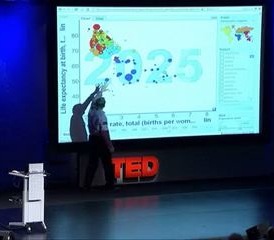- About
- Topics
- Picks
- Audio
- Story
- In-Depth
- Opinion
- News
- Donate
-
Signup for our newsletterOur Editors' Best Picks.Send
Read, Debate: Engage.
| September 21, 2012 | |
|---|---|
| tags: | #Nafta, #tpp, #trans-pacific partnership |
| org: | Avaaz |
| located: | USA, United Kingdom, France, Germany |
The specifics of the deal, called the Trans-Pacific Partnership (TPP), are largely unknown thanks to the veil of secrecy surrounding the negotiations. But details on what is being called the biggest free trade pact since the 1994 North American Free Trade Agreement (Nafta) are leaking – and a people-powered movement is stepping up to challenge it.
TPP has been labeled "Nafta on steroids". The original Nafta agreement, which took effect in 1994, established the world’s largest free trade zone between Canada, Mexico and the US. Billed as a way to eliminate barriers to trade and investment and promote economic growth, Nafta gave corporations powers comparable to those of sovereign nations for the first time – allowing companies to sue governments to protect their own interests.
Critics argued that Nafta would destroy jobs and farming practices, damage the environment and lower the real value of wages. Citizens across all three countries stepped up to challenge it with massive protests. Public outcry stretched from Seattle to Mexico City, where hundreds of thousands of farmers stopped traffic with their tractors to protest cheap corn imports streaming into Mexico.
Although this outcry ultimately did not stop the treaty, many of those fears turned out to be correct – and decades later citizens are not fooled. Today, over half of Americans believe that Nafta’s economic costs have outweighed its benefits.
Nevertheless, governments and corporations are still trying to push the free trade march forward. Talks on the TPP – Nafta’s twin treaty – started in 2008 and are now in their 14th round of negotiations.
America, focused on doubling its exports by 2014, is leading the charge, and representatives from Australia, Brunei, Chile, Malaysia, New Zealand, Peru, Singapore, and Vietnam are all taking part. Next month, Mexico and Canada are expected to join and many expect Japan will follow close behind.
Once an agreement is reached, TPP would remain open for any country to join – making its reach virtually limitless.
The problem is this: very little is actually known about the top-secret negotiations. Most of the information available comes from leaks that have escaped the tightly locked doors of the discussions.
It doesn't look good. A document leaked in June suggested that the pact would grant radical new political powers to multinational corporations. We know that tobacco, oil and pharmaceutical companies have joined Wal-Mart and almost 600 other corporate lobbyists to take part in the talks, pushing through a pact that would be enforced through an international tribunal. This body would have the power to overrule domestic laws and even impose trade sanctions on governments that fail to abide by its rulings.
The fear is that this could block proper regulation of the financial industry, limit our access to medicines and even empower companies to challenge environmental and healthcare regulations.
Like Nafta, TPP is sparking protests from San Diego to Tokyo. But it's not just activists who oppose it: over 130 members of the US Congress have released a letter calling for an end to the secrecy. It cannot be right, they point out, that corporations have had more information about this deal than elected officials.
Despite these demands for transparency, the talks continued this week behind locked doors. But the timeline for the conclusion of the talks – originally slated for the end of this year – was just extended indefinitely. This gives corporate interests more time to lobby – and citizens more time to organise.
Right now, the talks are so secretive that global citizens simply don’t have the information necessary to draw their own conclusions. But if we apply enough pressure, we can change this. Get involved: take action below and stop another secret corporate sellout.
Avaaz-Petition: One Million to Stop the Corporate Death Star
pictures: GlobalTradeWatch

By copying the embed code below, you agree to adhere to our republishing guidelines.
